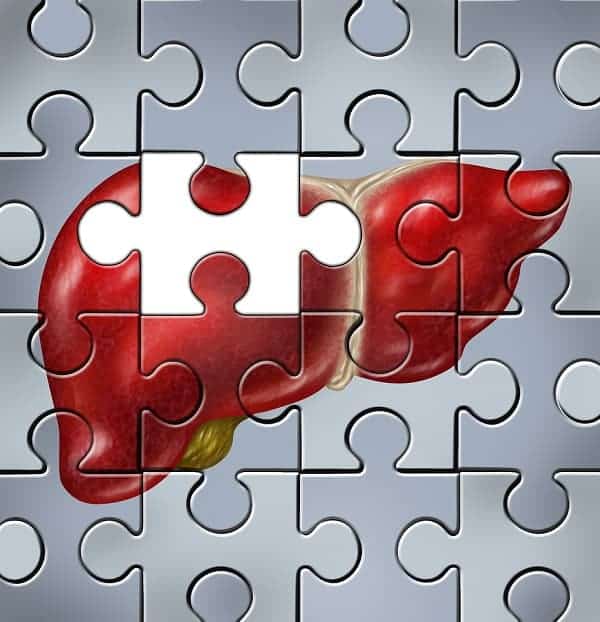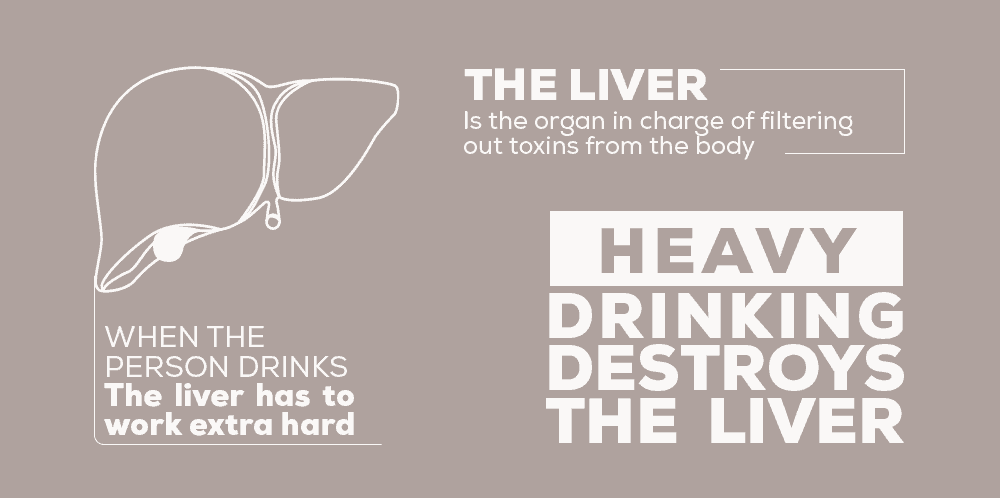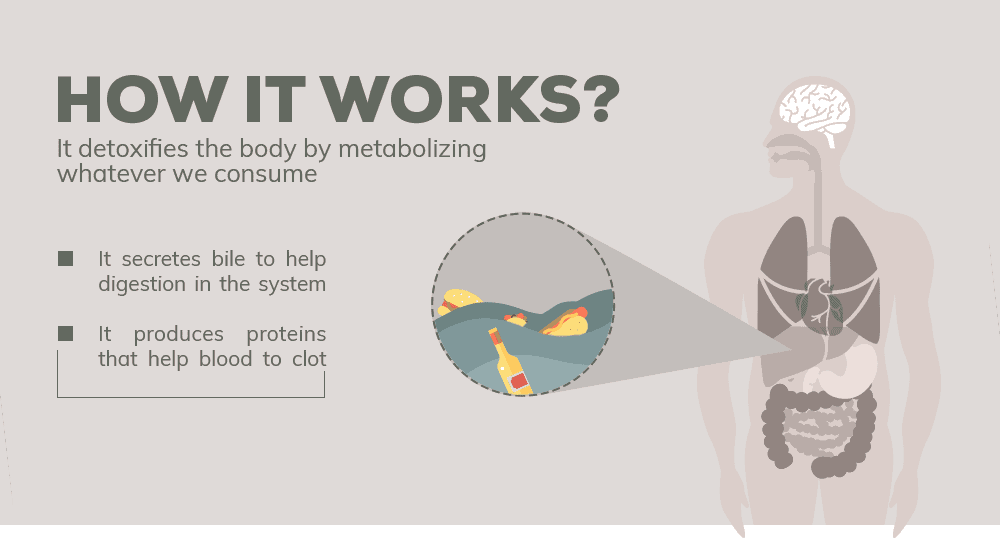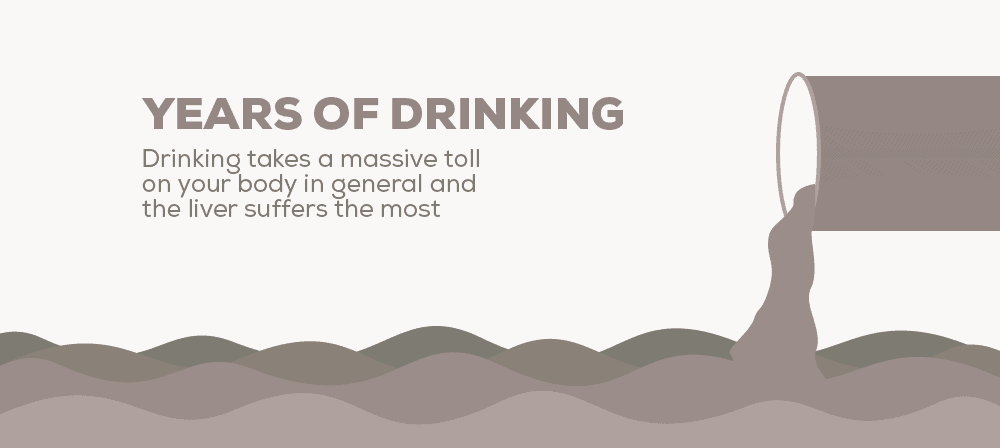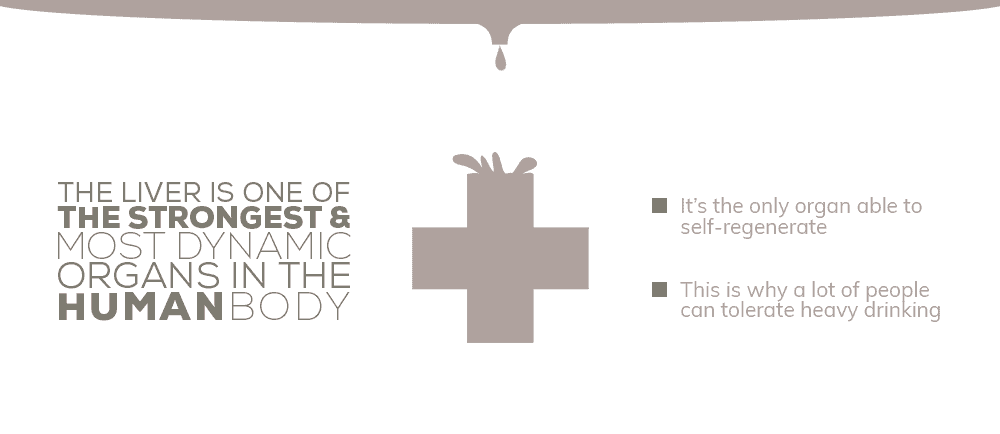Depending on what stage you are in your alcoholism, you may have caused serious damage to your liver. You have heard the expression, “What’s done is done.” This is not always the case with your liver. Since this is one of the only regenerative organs by nature, it’s actually possible to physically restore it to the state it was in before problem drinking began.
Can the Liver Repair Itself After Years of Drinking?
The liver is your body’s only regenerative organ. You are probably aware of the fact that some lizards can regrow their own tails. The liver works in very much the same way. It can rebuild itself. If you had 75 percent of your liver removed, it could grow back to its full size. Part of the reason for this unique ability comes from what the liver actually does in the body. Since it acts as the main filtration organ, it comes in contact with many different toxins and chemicals. And some of these toxins can actually cause serious damage when they come in contact with cells. As a result, the mere nature of the liver’s job – handling these dangerous toxins – means that it needs to be able to regenerate on its own. Otherwise, we’d fall victim to a variety of diseases much more frequently. And the fact that this vital organ has this ability to heal itself is good news when it comes to repairing your liver.
“Why compromise your work and family commitments? Get the help you need from our Outpatient Treatment Program”
When Alcoholics Get Sober, The Liver is Always a Concern
Focused on regaining physical health, many recovering alcoholics worry about their liver and go get a physical from the doc when they sober up. Rightfully so. It is no secret that alcohol completely destroys the liver. Responsible for cleansing toxins from the body, the liver works overtime to process beer, liquor, and wine. Not surprisingly, many alcoholics in recovery learn they have damaged their liver or contracted some kind of liver disease during the course of their alcoholism. And in fact, a damaged liver can lead to many of the various health problems that alcoholics experience because of their drinking. Frantic to get healthy so they can enjoy their newly found freedom in sobriety, many ask –can I heal my liver? By abstaining from alcohol, drinking lots of water, and eating a liver-friendly diet, you can reverse some of the effects of alcohol abuse. Yes, the good news is, the liver can repair itself after years of drinking.
What Does the Liver Do, Anyway?
To give you a brief lesson in biology, the liver is a large organ in the digestive system. It weighs about three pounds. Its number one function is to filter blood coming from your digestive tract before that blood flows to the rest of your body. The liver works to detoxify chemicals that pass through the body. It metabolizes drugs and alcohol. It also secretes an enzyme called bile, which aids the body in digestion. Additionally, the liver produces protein, which is vital to the clotting of your blood. When this organ is not healthy, your body cannot function properly. It is essential to your health and well-being. When your liver does not effectively rid the body of toxins and assist with the process of digestion, a host of really nasty health problems inevitably come about.
When You Abuse Alcohol, the Liver Takes a Beating
Many alcoholics consume large quantities of alcohol for decades and then make the courageous decision to get sober. But by then, their liver has sustained years of abuse and has most likely become ill due to the effects of the alcohol. Most chronic alcoholics have been told just how dangerous alcohol is to the liver at some point during their abuse of alcohol. Nevertheless, alcoholism doesn’t allow the alcoholic to care and the drinking continues. Sadly, the liver sustains a beating and becomes damaged. And after years of processing mass quantities of alcohol, it often no longer functions properly. Before we learn about healing the liver from alcohol abuse, let’s take a moment to learn more about some of the most common liver diseases caused by alcoholism – liver fibrosis, fatty liver disease, alcoholic hepatitis, and cirrhosis of the liver. All three of these conditions can be diagnosed with a blood test. 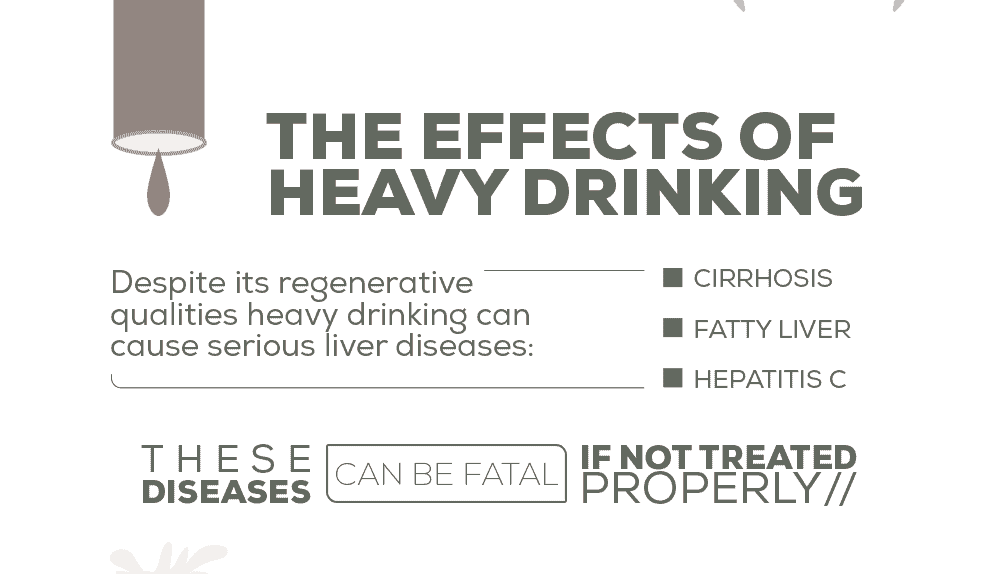
Liver Fibrosis – The Beginning of Irreversible Damage
Just like the skin, serious or repetitive damage to the liver cells can cause scarring. And also like how normal scars tend to look different from the rest of the skin, scarred liver cells just don’t function the way that they’re supposed to. In fact, these cells cannot self-repair like the rest of the organ or even function at all. They’re merely cellular bandages meant to hold the liver together. This scarring of the liver is known as liver fibrosis. A small amount of fibrosis likely won’t impact the liver’s function too much. And in fact, most early fibrosis won’t have any physical symptoms at all. But over time, this fibrosis can start adding up. And eventually, it can cause more serious problems like cirrhosis.
Years of Alcohol Abuse Could Result in Fatty Liver Disease
Fatty liver (also called “hepatic steatosis”) is a common liver disease. As the name implies, this condition develops when too much fat builds up in the liver. When the organ stores five to ten percent of its weight in fat, it is considered a fatty liver. Fatty liver affects up to twenty percent of the U.S. population, mostly targeting people between the ages of 40 and 60. Although many nondrinkers develop the condition, the most common cause for fatty liver is alcoholism. That’s because as continued alcohol consumption makes it harder for the liver to function, it becomes less able to break down fats in the blood. And as a result, this fat tends to actually accumulate on the liver itself. It’s normal to have some fat on the liver. And in fact, most healthy people have at least some fat on this vital organ. Most people who have fatty liver disease don’t even experience any symptoms. And those that do may feel tired or have discomfort in the upper right side of the abdomen. But when too much accumulates, it can mean that there’s a serious problem. One study showed that people with fatty liver disease were at a higher risk of cancer and had an increased mortality rate than other patients. And most importantly, alcoholic fatty liver is usually a precursor to cirrhosis.
Hepatitis – Death to the Liver
Many alcoholics contract what’s known as alcoholic hepatitis. This condition attacks the liver and breaks it down slowly over time. Essentially, it causes the body to poison itself. It’s a horrible illness. Alcoholic hepatitis should not be confused with hepatitis C. While hepatitis C is a viral disease, usually spread through contact with infected blood, alcoholic hepatitis is a disease where the liver is severely inflamed due to continued alcohol abuse. And although it’s true that someone with alcoholic hepatitis is at higher risk of contracting hepatitis C, the two are not the same. Like fatty liver disease, this is usually a precursor to more serious liver problems such as cirrhosis. But unlike fatty liver disease, alcoholic hepatitis points to serious inflammation. Fatty liver disease does not. And also unlike fatty liver disease, alcoholic hepatitis usually comes with symptoms because it usually means the liver is in a worse condition. Some of the most common of these symptoms include:
- Changes in appetite
- Dry mouth
- Weight loss
- Nausea and vomiting
- Pain or swelling in the abdomen
- Jaundice, or yellowing of the skin or eyes
- Fever
- Changes in your mental state, including confusion
- Fatigue
- Easy bleeding or bruising
It’s vital to contact your doctor if you think you have developed alcoholic hepatitis as it means the liver is in serious jeopardy. And just as importantly, anyone who suspects alcoholic hepatitis should not continue drinking. Even mild drinking with alcoholic hepatitis can lead to irreversible damage and diseases like cirrhosis.
Cirrhosis of the Liver – The Number One Offender
Chances are if you’ve been abusing alcohol long enough, you’ve been warned about cirrhosis of the liver. This is one of the most commonly diagnosed alcohol-related liver diseases and the most serious. Over a long enough period of alcohol abuse, liver scarring (fibrosis) can spread dramatically. And since the cells in this scarring don’t actually perform any functions other than being a physical barrier, the liver as a whole becomes less able to carry out its job in the body. As a result, toxins don’t get processed and build up in the body, bile isn’t produced as quickly, proteins that help the blood clot aren’t released as readily, and other serious problems can occur. Cirrhosis always shows up as the result of another liver-related disorder. This might be alcohol-related liver cancer, Hepatitis, or fatty liver. Cirrhosis is irreversible, but the progression of the condition can be slowed tremendously by following some of the suggestions offered later in this article about how to heal your liver. Some of the most recognizable symptoms of cirrhosis include:
- Blood capillaries become visible on the skin on the upper abdomen
- Fatigue
- Insomnia
- Itchy skin
- Loss of appetite
- Loss of bodyweight
- Nausea
- Pain or tenderness in the area where the liver is located
- Red or blotchy palms
- Weakness
And when cirrhosis progresses to more serious stages, it can bring a host of other symptoms too. These include:
- Accelerated heartbeat
- Personality changes
- Bleeding gums
- Lost mass in the body and upper arms
- Difficulties processing drugs and alcohol
- Confusion
- Dizziness
- Fluid buildup on ankles, feet, and legs, known as edema
- Hair loss
- Higher susceptibility to bruising
- Jaundice, or yellowing of the skin, whites of the eyes, and tongue
- Loss of sex drive
- Memory problems
- More frequent fevers and increased risk of infection
- Muscle cramps
- Nosebleeds
- Pain in right shoulder
- Breathlessness
- Stools become black and tarry, or very pale
- Urine becomes darker
- Vomiting blood
- Problems with walking and mobility
Alcohol-Related Liver Disease on The Rise
Addiction as a whole is becoming more and more of a problem in the United States. And in 2017 alone, more than 72 thousand Americans died from a drug overdose. On top of that, alcohol poisoning kills about 6 people every day. It shouldn’t come as much of a surprise, then, that alcohol-related liver disease is also at an all-time high. Studies have shown that while fatty liver disease has remained relatively stable, there is a greater number of cases involving cirrhosis, liver cancer, and even death from liver-related causes. Cirrhosis was one of the biggest factors here. And another study showed that cirrhosis-related deaths had increased in the U.S. by a whopping 65% from 1999 to 2016. Deaths from liver cancer had doubled. Younger people (aged 25 to 34) experienced the biggest changes. According to the study, this group experienced an average of 10.5% moredeaths from cirrhosis each year. Binge drinking culture was pointed to as one of the major causes of this increase. And since it seems like liver health has never been more at-risk than it is today, it’s never been more important than it is now to know how to keep your liver healthy and reverse as much damage as you can.
“We accept many health insurance plans. Take a look at our Outpatient Program.”
Healing the Liver from Cirrhosis, Fatty Liver, Alcoholic Hepatitis, and Other Liver Diseases
When talking about the liver’s ability to heal itself, people are always in a big hurry to know how long it will take. This is understandable, of course. But it is difficult – if not impossible – to answer this question. Everybody’s body is different. The progression and type of liver disease, a person’s age, weight, and overall health are all contributing factors when it comes to how long it takes the liver to repair itself from an alcohol-related liver disease. The liver is constantly in a state of regeneration. The moment it stops processing alcohol, it begins the process of healing itself. This process could take as few as four weeks or as long as several years. It really all depends on the health of the individual person. This might seem like a frustrating answer, but it’s an honest one. To be sure, you cannot heal your liver overnight. You have to implement some new health practices over time and work with your doctor to measure your liver enzymes to measure the upward progression of your liver’s health. 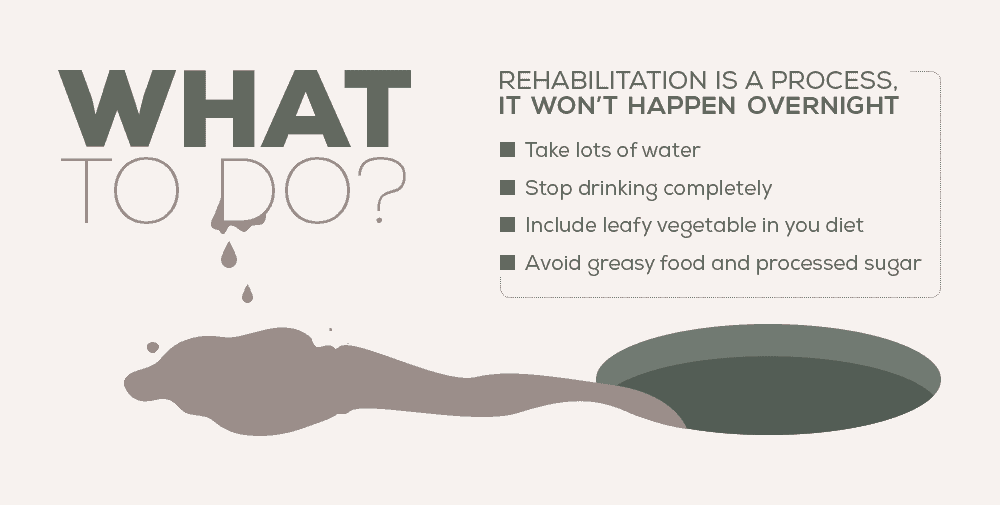
How to Repair Your Liver Naturally – Drink Water
Taking steps in recovery is about more than working the 12 Steps. It’s about taking steps to heal your physical body from the damage caused by your alcoholism. Want to heal your liver naturally? Drink lots and lots (and lots) of water. Seriously, the very best thing you can do for your liver is flush it with pure, clean, unadulterated water. This does not mean iced tea. This does not mean juice. We fool ourselves into believing we are drinking plenty of water because we drink things with water in it. We need to be drinking water. Just water. Lots of it. Enough cannot be said about the benefits of drinking water. Water cleanses the system of toxins. As you know, the liver is responsible for the flushing of toxins. Water aids the liver with this process. It hydrates your body and keeps your brain firing on all cylinders. It helps you stay alert, productive, and in a balanced mood. Water is just awesome! Switching to water has to be a conscious decision. If you want to improve the health of your liver, you need to drink water.
The Healing Power of Exercise
“Get more exercise” – a typical response for doctors who may see early signs of liver problems. As with so many other health problems, regular exercise seems to be a powerful force for combating alcohol-related liver disease like fatty liver. And the science backs it up too. Researchers studied the effects of alcohol on active and inactive lab rats and found the effects on the liver were not as severe in the active ones. Specifically, they found that the high metabolism of the active rats actually prevented the expected levels of liver inflammation. According to the researchers, “chronic alcohol ingestion did not cause significant inflammation in the liver. Higher physical activity levels seemed to protect against the metabolic dysfunction that eventually leads to irreversible liver damage.” It’s worth mentioning, of course, that more research needs to be done on the topic. But as it stands, it seems like regular exercise can go a long way towards preventing further inflammation and promoting liver health. And on top of that, exercise has a number of other passive benefits that can help keep your liver in tip-top shape. Below are some of the most notable.
- It’s a healthy hobby that can replace other habits like drinking out of boredom, one of the biggest causes of binge drinking.
- It releases a surge of “feel-good” chemicals that can help substitute for the dopamine rush of a glass of booze.
- It can help treat depression and anxiety, two major factors in the continuation and worsening of an alcohol abuse problem.
- It can boost confidence and help treat low self-esteem, which is common among alcoholics.
- Joining an exercise group can connect you with other people and reduce loneliness, another risk factor for developing alcoholism.
A Liver-Friendly Diet is Vital to Healing Your Liver
The liver is the main organ responsible for filtering out toxins and harmful chemicals in the blood. And the majority of these dangerous substances come from the food we eat and the water we drink. Plus, in order for the body to heal itself, it needs the right kinds of compounds and molecules to patch up the damaged areas. So it makes sense that in order to aid your liver in the healing process, you need to be on the right diet. Eating the right foods is essential when it comes to repairing your liver. Equally important? Staying away from the wrong ones. Here is a quick list of do’s and don’ts when it comes to a liver-friendly diet: Do:
- Eat lots of veggies (broccoli, carrots, and green leafy vegetables especially)
- Eat acidic fruits like grapefruit, berries, grapes, lemons, and oranges
- Drink coffee. Yes, coffee is good for your liver…. Yay!
- Drink green tea
- Eat plenty of garlic
- Maintain a plant-based diet as much as possible
- Eat foods high in Omega-3, like fish, nuts, and healthy oils like olive oil
- Eat foods high in fiber like oatmeal
Don’t:
- Eat foods high in fat or loaded with grease
- Eat starchy foods like breads, pasta, or cakes and baked goods
- Eat a lot of processed sugar or salt
- Drink soda
- Consume a lot of fatty animal proteins (sorry, this means steak!)
- Drink alcohol
Another thing to keep in mind as you focus on repairing your liver from alcohol abuse is maintaining a healthy weight. When you eat the right diet, this comes with the territory. Plus, a nutrition-rich diet can go a long way towards supporting recovery too. So when it does come time to kick your alcohol problem for good, eating right can make quitting much easier. Want to spice things up in the kitchen and cook up a good meal for your liver? Get some liver-friendly recipes.
To Heal Your Liver, You Must Stop Drinking Alcohol
Simply put, there is no way to heal your liver if you are still drinking alcohol. As long as you are consuming wine, beer, or liquor, you are continuing to damage your liver. There is just no way around it. If you want to regain physical health, you must make the decision and subsequent commitment to abstain from alcohol. No matter what. If you have a problem with alcohol, help is available. You may need to go a detox to safely withdraw from alcohol. You might need to stay at an inpatient facility and get professional addiction treatment services. Or, you may be able to find freedom from your alcoholism at Alcoholics Anonymous. Whichever path you choose, if you want to help your liver, please make the decision today to get the help you need to stop drinking alcohol.
Finding the Right Kind of Rehab When Liver Damage Is Involved
Finding the right professional alcohol rehabilitation program can be tough. It can be hard to determine which programs will have the right kind of amenities, the proper expertise, and even whether or not they use actual evidence-based strategies for treating addiction. But for those with severe alcoholism, the search can be even harder. When someone is suffering from serious liver damage caused by alcoholism, their body is in an especially fragile state. And when it comes time for these individuals to seek out professional treatment for their addiction, there are a few important points that they should consider when deciding on a particular program.
Complications of Alcohol-Related Liver Disease
When alcohol-related liver disease has progressed to serious stages, it can cause a variety of complications that may also need to be treated during a professional addiction program. And without a quality treatment program that’s actually qualified to treat these complications, patients may be at risk of developing serious problems as a result. Some of the most common complications are:
- Bleeding disorders (coagulopathy)
- Buildup of fluid in the abdomen (ascites) and infection of the fluid (bacterial peritonitis)
- Enlarged veins in the esophagus, stomach, or intestines that bleed easily (esophageal varices)
- Increased pressure in the blood vessels of the liver (portal hypertension)
- Kidney failure (hepatorenal syndrome)
- Liver cancer (hepatocellular carcinoma)
- Mental confusion, change in the level of consciousness, or coma (hepatic encephalopathy)
The Dangers of Alcohol Withdrawal
For many, alcohol-liver disease is an indication of severe alcoholism. If drinking has gotten to the point of liver damage, it usually means that the person has a very real dependency problem. And that can make treating alcoholism particularly tricky. One of the main concerns involved has to do with the withdrawal stage. This is when the body has to reacclimate to functioning normally without alcohol. And for many, that means stopping drinking abruptly and entirely. The problem, however, is that doing so can cause very serious health problems, some of which can even be life-threatening. Tonic-clonic seizures, for instance, can be common for people who have an especially high level of addiction. Others may experience what’s known as delirium tremens. Some of the most common symptoms include:
- Delirium, which is sudden severe confusion
- Body tremors
- Changes in mental function
- Agitation, irritability
- Deep sleep that lasts for a day or longer
- Excitement or fear
- Hallucinations (seeing or feeling things that are not really there)
- Bursts of energy
- Quick mood changes
- Restlessness
- Sensitivity to light, sound, touch
- Stupor, sleepiness, fatigue
This horrifying syndrome can also cause a range of complications like heart attack and stroke. It’s especially important, then, that anyone with alcohol-related liver disease finds a facility equipped to handle the medical emergencies that may come with severe alcohol withdrawal. Because without it, alcohol detox and rehabilitation can actually end up being deadly.
“Addiction has no social or economic boundaries, anyone can be affected. Learn more about our Outpatient Rehab Program and how it can help you or your loved one.”
The Good and Bad News When It Comes to Healing Your Liver
The liver is quite magical really. We destroy it with drunken binges. Then, we get our act together and make better choices, and shazam! We can bring healing to our poor, tired, overworked liver. That being said, please keep in mind that some liver damage is irreversible. Many people wait until it is too late before they focus on repairing their liver. Long-term effects of drug and alcohol abuse, liver diseases, and untreated conditions like Hepatitis C can leave our liver in a perpetually damaged state. This does not mean you cannot start making better choices today and live a long and healthy life… even if your liver is a little under the weather. Doing the next right thing in terms of taking care of your physical body goes a long way when it comes to health and wellness. Yes, your liver can heal itself… but you are going to have to help. Remember, to help repair your liver from years of drinking alcohol, follow the four simple suggestions offered in this article: drink water, get plenty of exercise, don’t drink alcohol, and eat a liver-friendly diet. Do you have experience with healing your own liver? What health tips can you share?
Frequently Asked Questions
What is Alcohol Abuse?
What Causes Alcohol Abuse?
- Loneliness
- Poor self-esteem
- Tension
- Self-doubt
- Unhappiness
A lot of people start drinking alcohol as a way to self-medicate because they have a mental health issue that is not being properly treated. This is called having a co-occurring disorder. There are many co-occurring disorders that might commonly accompany alcohol abuse. Mental illnesses are very common among alcohol abusers, and they can include:
- Anxiety
- Depression
- Bipolar disorder
- Schizophrenia
- Panic disorder
Because alcohol is a depressant, it can help to slow the brain down, which is an effect some people are looking for when they drink. But it can do so much damage to the body over time, and it often does not take long before people get addicted to it.
What is Alcohol Use Disorder?
- Drinking a larger amount of alcohol, or for longer than you meant to.
- Having a desire to cut down on your alcohol consumption or stop drinking altogether, but not being able to.
- Spending a lot of time drinking.
- Spending a lot of time recovering from the aftereffects of drinking.
- Having cravings for alcohol.
- Experienced problems in your life because of your drinking behaviors.
A lot of people do not realize that they have AUD. If you have concerns, it is important to talk with a professional to get a diagnosis and learn about the steps you need to take for recovery.
How are Alcohol Abuse and Alcoholism Diagnosed?
What is Binge Drinking?
- The risk of violence, including suicide and sexual assault.
- Sudden infant death syndrome.
- Memory and learning issues.
- An increased risk of cancer
- Unintentional injuries.
- Sexually transmitted diseases.
What Should I do if I Think I Might Have Alcohol Use Disorder?
What Did you Think About This Blog?
Give it a Rating!

